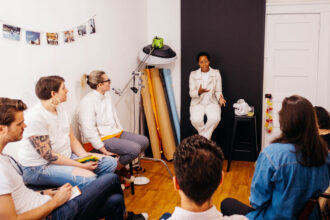3 Ways to Flex Your Creative Muscles
On Wednesday, September 18th, eleven of us gathered at WeWork Union Square in New York City to take a crack at challenging our ideas and definitions of creativity. In this recap we’ll share the three activities we engaged in that will help you flex your creative muscles.
There’s a common misconception that being creative requires that you’re an artist, work in an agency, or some other cool company where people dress casually every day. Love Wavelength was formed to connect ambitious creatives from all disciplines and backgrounds. When we say “creatives,” we are referring to anyone who is building or making something with their hands or their mind.
We often fall into the trap of thinking that creativity is a spark, or a moment, that just happens. Sometimes we try to get ourselves in a mood to ignite that elusive spark. More often than not we don’t get the results we want by trying to force it.
We can’t wait around all day for creativity to just happen. Rather than a mysterious gift or moment, we can think of creativity as a skill. Creativity is the skill of problem solving.
Luckily for us, we problem solve every single day. What am I going to eat for breakfast? How should I schedule out my week? How do I tell someone I don’t like them? As long as you are using your brain to solve problems, then you’re capable of being creative.
The Starter



To kick off the evening, we started with an activity that was born out of feedback from previous gatherings. One of our members thought it would be valuable to get introduced to the group before diving into deep conversations.
Instead of going around the room doing introductions, we engaged in People Bingo. The group got on their feet and sought people with qualities that were on their Bingo card. Each card had qualities like, “needs coffee in the morning,” and “cries at the movie theaters.”
After around 15 minutes of mingling, one ambitious person in the room got Bingo and was $10 richer in Amazon money.
The Discussion
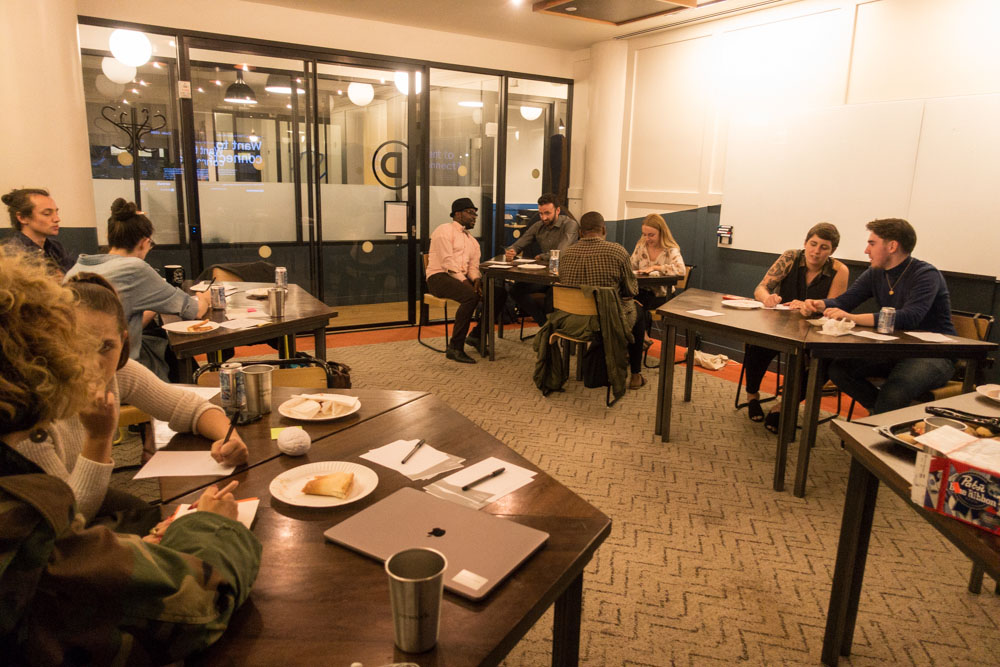
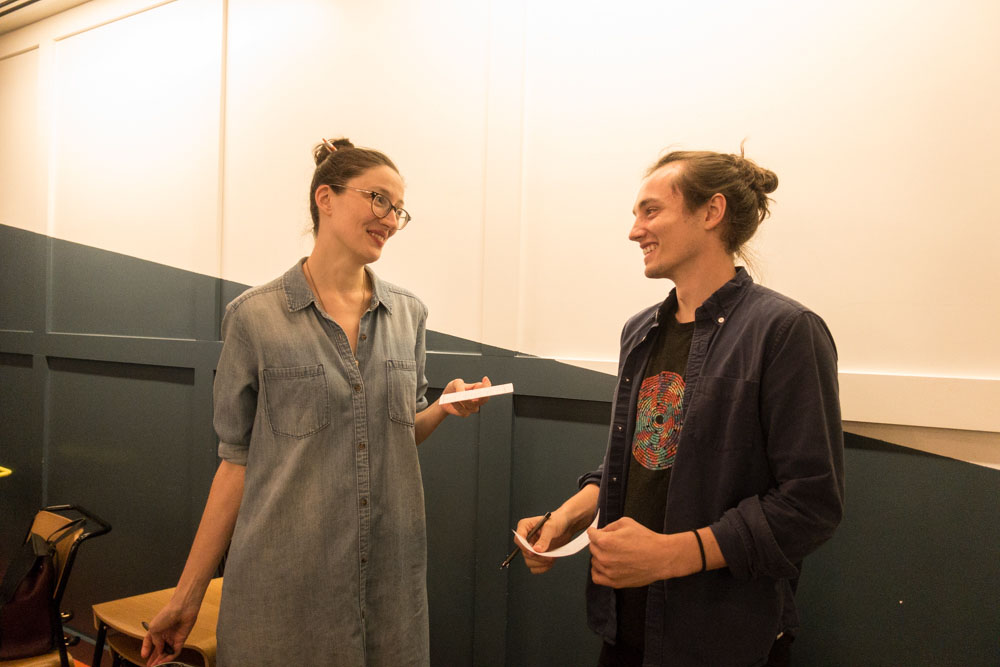
Before engaging in interactive activities, we started with a discussion about what creativity means to us. This was prefaced noting that there is no right or wrong answer to what creativity means to us subjectively. The purpose of the discussion was for the room to hear different perspectives.
Nathan Brown, an artist manager and musician, noted how every idea we come up with is inspired by an existing idea. This goes all the way back to the dawn of humanity. To him, a big part of creativity is recognizing that path of idea generation.
Christina Holland, a photographer and activist, believes that anyone can be creative.
Lili’uoani Pickford, a graphic designer and jewelry designer, spoke in terms of her creative process. She usually starts with the definition and follows where that inspires her. After reading the definition of creativity to the room below, Lili’ou admitted she wasn’t very inspired by it.
Creativity; noun: the use of the imagination or original ideas, especially in the production of an artistic work.
From Oxford
The Activities
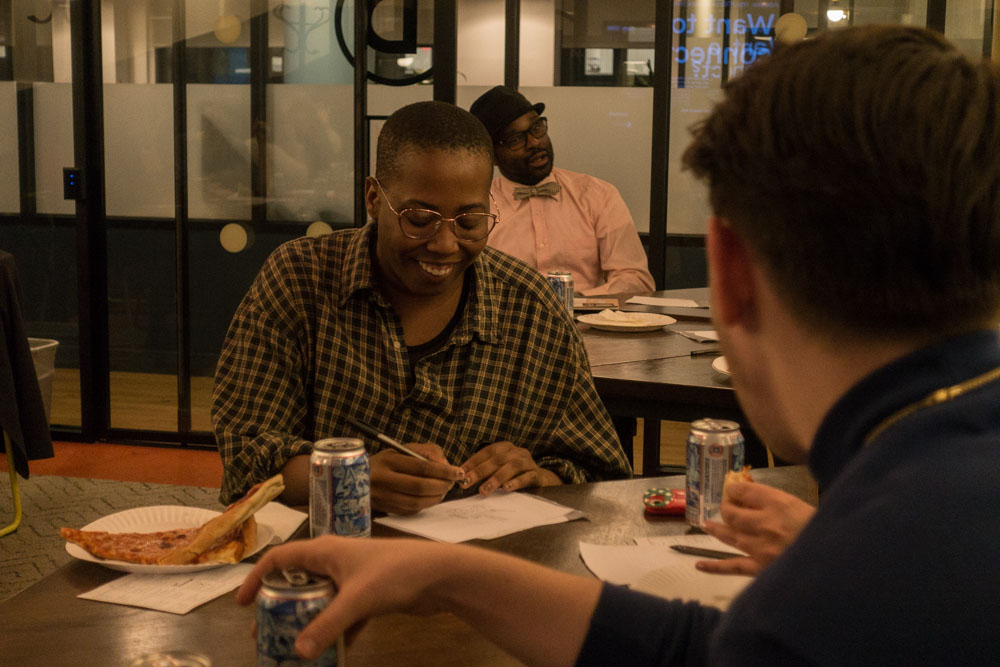
The following two activities were taken from the Creativity Bootcamp course by Creative Director, Stefan Mumaw on LinkedIn. Everyone paired up in twos or threes and imagined a world where the Wild Wild West period had cereal brands. Each group had 3 minutes to create a list of potential toys that might be in a box of “Wild Wild Westios.”
At the end of the 3 minutes, the group was asked to shout out some of their first items on their list. Everyone generally had the same toys like cowboy, cowboy hat, and lasso.
Then they were asked to look at the last 2-3 items on their list. Someone shouted “kaleidoscope.” We shared some laughs over the silliness of the toys.
This activity demonstrated the trajectory of creativity. We typically start with ideas that are borrowed from other people. And there’s nothing wrong with that. These ideas are just not unique or novel. As we exhaust borrowed ideas, there’s a pause where the rush of ideas stops. This is where people usually stop brainstorming.
But, if you continue to let the process play out, and allow yourself to think of something absurd or silly and even unrelated, then the flow of ideas can start again. This is when the most creative ideas occur; when we allow ourselves to be stupid.
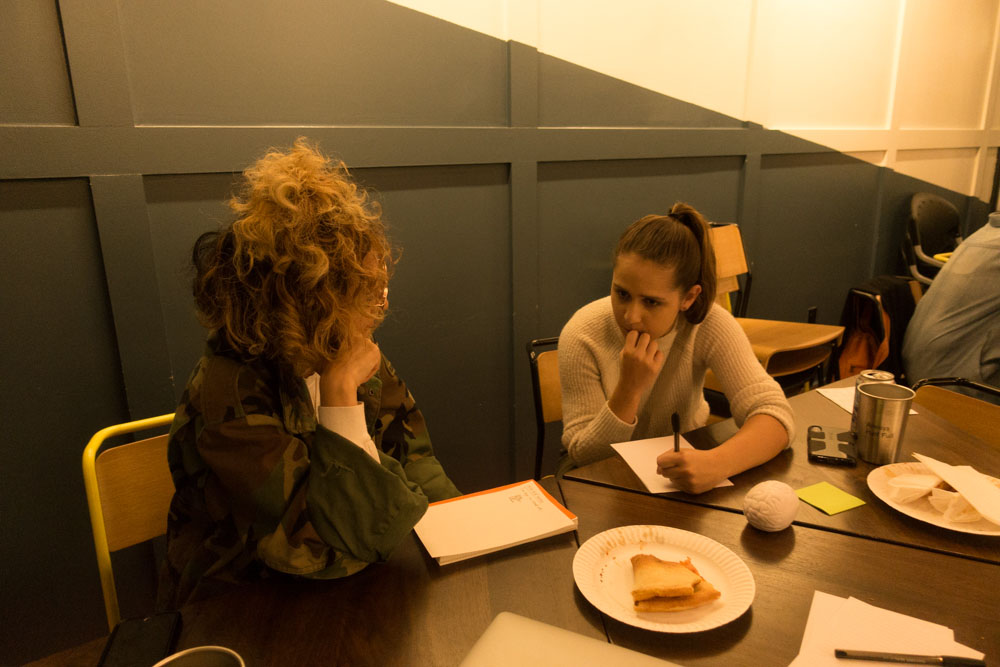
The next activity, also taken from Creativity Bootcamp, called for the groups to design the Ultimate Desk. This desk could be comprised of anything. There were no rules. This Ultimate Desk should just be anything you would ever need and want in a desk.
With 5 minutes on the clock, the room went to work on their desk designs. After the time was up we shared our ideas with each other. One desk had a seat made up of a cloud. Another desk had a button that would deliver your lunch in seconds.
One thing the desks all had in common was 1) a flat surface and 2) a dispenser of some kind. When we think of the ultimate version of anything, we tend to start with what we already know. And according to Creativity Bootcamp’s Stefan, we know too much.
A desk has informed a multitude of other objects that we interact with daily, simply because we’ve all decided as a society that a desk must have a flat surface. But what does a desk look like 20 years from now? 100 years from now? If we continue to allow our ideas to start from what we have agreed upon, then we are robbing ourselves the opportunity to be innovative.

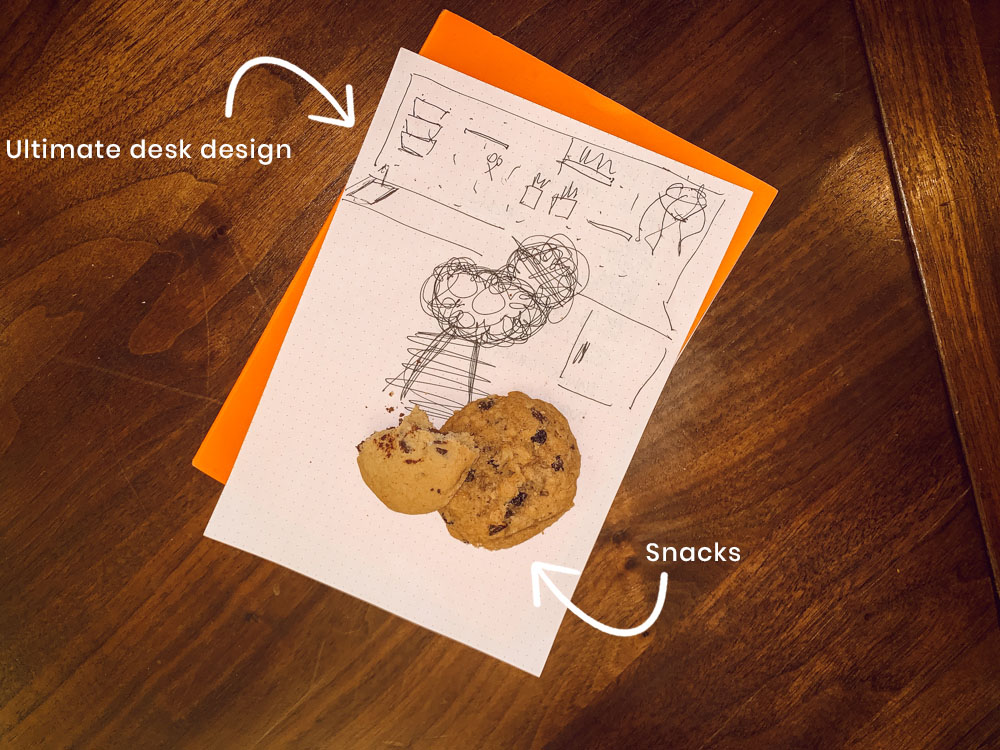
Our last activity was something taken from feedback in a previous gathering. One member thought it would be fun and meaningful to share ideas with each other to get feedback. It was inspired by peer review sessions that many visual artists engage in during art school to help improve their projects. Each group was given around 30 minutes to share anything they wanted feedback on, whether career related or personal.
Finally, like all Love Wavelength gatherings, we closed the evening with a round of reflection. Some individuals in the room had never thought about creativity as a skill you could improve. One creative was inspired and entertained by everyone’s desk design. Another person felt that the evening motivated her to start cracking on one of her creative problems.
Let’s Grow Together
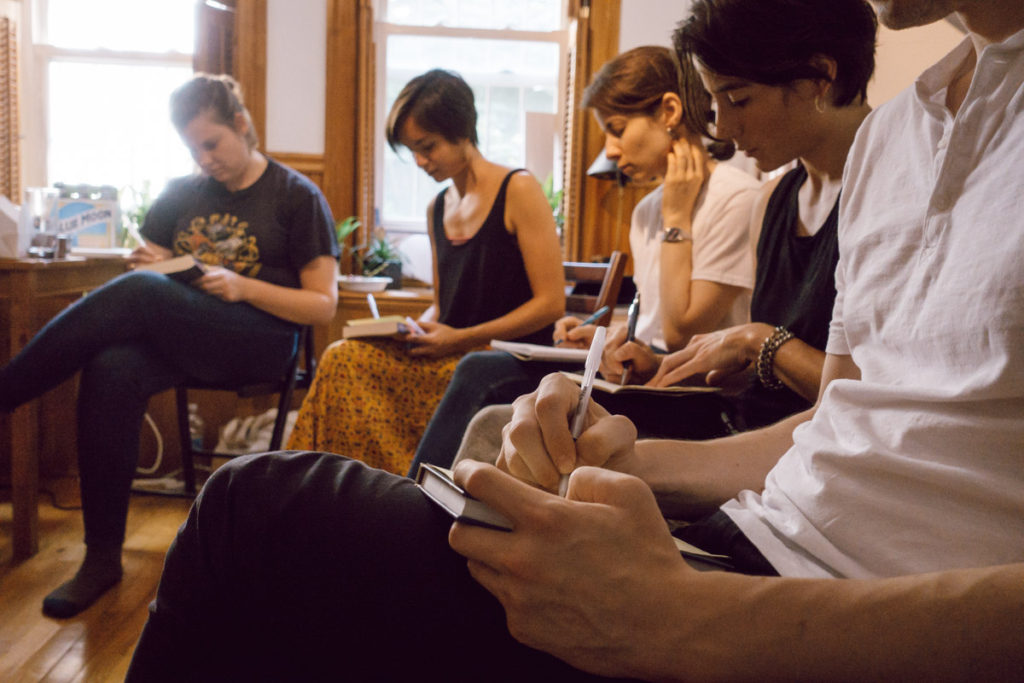
The Love Wavelength community wants to continue providing a platform for meaningful, intimate gatherings. We are looking for collaborators to help the community serve its purpose in the best way. If you’re passionate about bringing people together and have a knack for organization or management, please contact our founder and host, Alexia, at hello@lovewavelength.com. If you’d like to join the community, subscribe below.

